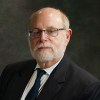
We welcome the fourth book of Torah this Shabbat, B’midbar-Numbers. We are in the wilderness and about to move forward to the eventual goal of our Torah story. But first, Moses needs to find out who is with them and who may be counted on in case of trouble. So, we see the first act of the book is to take a census. This is a portion about “numbering” the people.
As with many of our texts, a little discussion and study reveal gems of interpretation. One of those interpretations that may be drawn from this week’s portion is the traditional concept of our own uniqueness. Yes, in this portion, people “count” for something. This reminds us of a classic Midrash about coins that no doubt your rabbi has taught. While a king may mint coins and have the coins have the same picture, God, says the Midrash, mints each human being in God’s image and each is unique. There is no one like you, ever; or will ever be! This is a message that too often gets lost in today’s world where there is this desire to often be part of the crowd. Indeed, you can read some of the political/social challenges that we are witnessing as an extension of the fear of encountering someone or something that stands out, that is unique.
There is a wonderful interpretation of this portion that also reminds us of this linkage to our own life and its’ uniqueness. In the Conservative movement’s Etz Hayim commentary of this portion is a citation from Levi Yitzchak of Berdichev. In Numbers 1:46 we read that the final total of Israelites over 20 years of age, according to the census, was 603,550. Levi Yitzchak links this to “a tradition that there are 603,550 letters in the Torah. Just as the absence of one letter renders a Torah scroll unfit for use, the loss of even one Jew prevents Israel from fulfilling its divine mission.” (p.770)
As we get older and contemplate on what is important in life, many of us come to the realization that we are enriched by the uniqueness of people. How many of us have family members, children, or grandchildren, who have sought their own path, their own style their own life choice? Do we love them any less? Maybe one of the real hidden lessons of this portion is a call to celebrate differences rather than fear them. Perhaps, especially as Jews who have too often been singled out as “the other”, we need to work to spread the message of acceptance and kindness. For if we are all “in God’s image”, are not we all a reflection of what is possible, of what can be sacred, each in our own unique way?
Shabbat shalom
Rabbi Richard F Address
Rabbi Richard F. Address, D.Min, is the Founder and Director of www.jewishsacredaging.com. Rabbi Address served for over three decades on staff of the Union for Reform Judaism; first as a Regional Director and then, beginning in 1997, as Founder and Director of the URJ’s Department of Jewish Family Concerns and served as a specialist and consultant for the North American Reform Movement in the areas of family related programming. Rabbi Address was ordained from Hebrew Union College-Jewish Institute of Religion in 1972 and began his rabbinic career in Los Angeles congregations. He also served as a part time rabbi for Beth Hillel in Carmel, NJ while regional director and, after his URJ tenure, served as senior rabbi of Congregation M’kor Shalom in Cherry Hill, NJ from 2011-2014.


Great article.